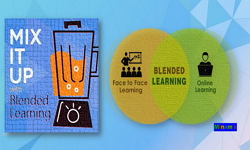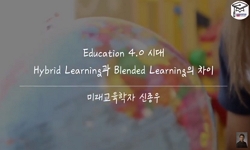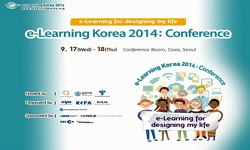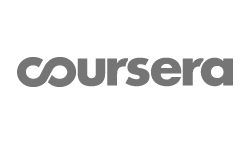The purpose of this study is to examine the effects of nursing education utilizing blended learning on nursing students' learning motivation and academic self-efficacy. This study employed a non-equivalent control group pretest-posttest design. Partic...
http://chineseinput.net/에서 pinyin(병음)방식으로 중국어를 변환할 수 있습니다.
변환된 중국어를 복사하여 사용하시면 됩니다.
- 中文 을 입력하시려면 zhongwen을 입력하시고 space를누르시면됩니다.
- 北京 을 입력하시려면 beijing을 입력하시고 space를 누르시면 됩니다.

블렌디드 러닝을 경험한 간호대학생의 학습동기, 학업적 자기효능감 = The Learning Motivation and Academic Self-Efficacy of Nursing Students Who Experienced Blended Learning
한글로보기부가정보
다국어 초록 (Multilingual Abstract)
The research results indicated a statistically significant increase in learning motivation (t=3.35, p=< .01) and higher academic self-efficacy (t= .59, p= .56) in the experimental group that received nursing education with blended learning compared to the control group. As a result of analyzing the descriptive data, the positive effects of nursing education applying blended learning were ‘concepts understanding’, ‘memory consolidation,’ and ‘repetitive learning,’ while the area for improvement was ‘fatigue.’ Based on these findings, it is suggested to implement nursing education utilizing blended learning to enhance nursing students' learning abilities. Additionally, further repeated studies employing diverse research methods are needed to validate these effects.
The purpose of this study is to examine the effects of nursing education utilizing blended learning on nursing students' learning motivation and academic self-efficacy. This study employed a non-equivalent control group pretest-posttest design. Participants included 31 students in the experimental group and 32 students in the control group, all in their fourth year in the nursing department at H University. Nursing education spanned 7 weeks, totaling 14 hours. The experimental group underwent nursing education using blended learning, while the control group received nursing education through lecture-based methods. Data collected were analyzed using descriptive statistics, chi-square tests (χ² test), and t-tests with SPSS WIN 21.0 software.
The research results indicated a statistically significant increase in learning motivation (t=3.35, p=< .01) and higher academic self-efficacy (t= .59, p= .56) in the experimental group that received nursing education with blended learning compared to the control group. As a result of analyzing the descriptive data, the positive effects of nursing education applying blended learning were ‘concepts understanding’, ‘memory consolidation,’ and ‘repetitive learning,’ while the area for improvement was ‘fatigue.’ Based on these findings, it is suggested to implement nursing education utilizing blended learning to enhance nursing students' learning abilities. Additionally, further repeated studies employing diverse research methods are needed to validate these effects.
참고문헌 (Reference)
1 김아영, "학업적 자기효능감 척도 개발 및 타당화 연구" 39 (39): 95-123, 2001
2 이신애, "하브루타 학습법을 적용한 기본간호학실습이 간호대학생의 핵심간호술기 수행자신감, 의사소통능력, 학업적 자기효능감에 미치는 효과" 한국산학기술학회 24 (24): 300-308, 2023
3 장양민, "하브루타 기반 교수학습방법이 간호대학생의 학업적 자기효능감, 비판적 사고성향, 학습만족도, 학업스트레스에 미치는 효과" 한국응용과학기술학회 37 (37): 1366-1377, 2020
4 한숙정 ; 정현철, "플립러닝 학습 효과와 경험에 대한 연구" 사단법인 인문사회과학기술융합학회 6 (6): 101-108, 2016
5 김소영, "정맥주사 시뮬레이터를 활용한 실습교육이 정맥주사요법에 대한 수행자신감, 자기주도 학습능력과 학업적 자기효능감에 미치는 효과" 학습자중심교과교육학회 21 (21): 51-58, 2021
6 김은일 ; 이형철, "온라인 학습 플랫폼을 활용한 블렌디드 러닝이 초등학생의 과학학습동기, 자기주도적 학습능력에 미치는 효과" 미래교육원 38 (38): 23-36, 2023
7 김성일, "예비기술교사의 플립드러닝 수업이 자기주도학습, 학습 동기 및 수업 만족도에 미치는 영향" 한국기술교육학회 23 (23): 71-89, 2023
8 이주연 ; 오재우, "비대면 전공수업을 경험한 간호대학생의 학습동기와 학습몰입과의 관계: 학습관련 자기주도성의 매개효과" 대한산업경영학회 20 (20): 73-81, 2022
9 김혜미 ; 김정렬, "블렌디드러닝과 플립러닝을 활용한 영어교육연구의 효과 비교를 위한 메타분석" 학습자중심교과교육학회 19 (19): 241-258, 2019
10 김연철 ; 이은철, "블렌디드 액션러닝프로그램이 대학생의 자기주도적 학습능력에 미치는 영향" 한국콘텐츠학회 15 (15): 658-671, 2015
1 김아영, "학업적 자기효능감 척도 개발 및 타당화 연구" 39 (39): 95-123, 2001
2 이신애, "하브루타 학습법을 적용한 기본간호학실습이 간호대학생의 핵심간호술기 수행자신감, 의사소통능력, 학업적 자기효능감에 미치는 효과" 한국산학기술학회 24 (24): 300-308, 2023
3 장양민, "하브루타 기반 교수학습방법이 간호대학생의 학업적 자기효능감, 비판적 사고성향, 학습만족도, 학업스트레스에 미치는 효과" 한국응용과학기술학회 37 (37): 1366-1377, 2020
4 한숙정 ; 정현철, "플립러닝 학습 효과와 경험에 대한 연구" 사단법인 인문사회과학기술융합학회 6 (6): 101-108, 2016
5 김소영, "정맥주사 시뮬레이터를 활용한 실습교육이 정맥주사요법에 대한 수행자신감, 자기주도 학습능력과 학업적 자기효능감에 미치는 효과" 학습자중심교과교육학회 21 (21): 51-58, 2021
6 김은일 ; 이형철, "온라인 학습 플랫폼을 활용한 블렌디드 러닝이 초등학생의 과학학습동기, 자기주도적 학습능력에 미치는 효과" 미래교육원 38 (38): 23-36, 2023
7 김성일, "예비기술교사의 플립드러닝 수업이 자기주도학습, 학습 동기 및 수업 만족도에 미치는 영향" 한국기술교육학회 23 (23): 71-89, 2023
8 이주연 ; 오재우, "비대면 전공수업을 경험한 간호대학생의 학습동기와 학습몰입과의 관계: 학습관련 자기주도성의 매개효과" 대한산업경영학회 20 (20): 73-81, 2022
9 김혜미 ; 김정렬, "블렌디드러닝과 플립러닝을 활용한 영어교육연구의 효과 비교를 위한 메타분석" 학습자중심교과교육학회 19 (19): 241-258, 2019
10 김연철 ; 이은철, "블렌디드 액션러닝프로그램이 대학생의 자기주도적 학습능력에 미치는 영향" 한국콘텐츠학회 15 (15): 658-671, 2015
11 이정연, "블렌디드 러닝을 활용한 한국어 프로젝트 수업 모형 개발 연구" 외국어교육연구소 37 (37): 55-78, 2023
12 양권우, "블렌디드 러닝 기반 코딩교육이 예비 초등교사의 학습몰입 및 학업적 자기 효능감에 미치는 영향" 한국지식정보기술학회 17 (17): 1121-1129, 2022
13 주은솔 ; 오은주 ; 방요순, "보건계열전공 대학생의 학업적 자기효능감, 온라인수업 성취도 및 만족도 간의 관계" 인문사회 21 12 (12): 1713-1724, 2021
14 이순주 ; 이지연, "대학생의 내현적 자기애가 취업불안에 미치는 영향: 학업적 정서조절과 학업적 자기효능감의 매개효과" 학습자중심교과교육학회 21 (21): 805-820, 2021
15 김영석 ; 한경옥 ; 김재은, "노인의 학습동기 측정도구개발 연구" 한국평생교육학회 24 (24): 85-116, 2018
16 김윤수, "간호대학생의 플립러닝을 적용한 지역사회간호학 교육이 학습동기, 학습관련 자기주도성, 자기효능감, 비판적 사고성향, 문제해결력 및 학습만족도에 미치는 효과" 학습자중심교과교육학회 23 (23): 311-324, 2023
17 김소희 ; 이정민 ; 김민경 ; 김수아 ; 김주은 ; 노윤서 ; 송지민 ; 이다원 ; 이소희, "간호대학생의 메타인지, 학습동기, 학업적 자기효능감이 자기주도학습능력에 미치는 영향" 다문화건강학회 13 (13): 27-38, 2023
18 김혜원, "간호대학생의 디지털 리터러시, 가상현실에 대한 인식 및 가상현실을 적용한 간호 교육 요구도" 한국간호교육학회 29 (29): 17-26, 2023
19 Fasya, A., "The Influence of Learning Motivation and Discipline on Learning Achievement of Islamic Religious Education in State Elementary Schools" 6 (6): 1-12, 2023
20 이고운, "TBL을 활용한 블렌디드 러닝 생명윤리 프로그램이 간호학과 학생들의 윤리적 의사결정 자신감, 비판적 사고성향, 도덕적 민감성, 학업자기효능감에 미치는 효과" 한국농촌간호학회 18 (18): 19-26, 2023
21 Hong, J. Ch., "Personality Traits Predict the Effects of Internet and Academic Self-Efficacy on Practical Performance Anxiety in Online Learning under the COVID-19 Lockdown" 55 (55): 426-440, 2021
22 Ali, J. K. M., "Impact of ChatGPT on Learning Motivation : Teachers and Students' Voices" 2 (2): 41-49, 2023
23 Chen, K. S., "Academic Outcomes of Fipped Classroom Learning : A Meta-Analysis" 52 : 910-924, 2018
동일학술지(권/호) 다른 논문
-
- 한국비즈니스학회
- 김정심
- 2023
- KCI등재
-
자대병원 유·무가 간호학과 학생의 임상실습 스트레스에 미치는 영향
- 한국비즈니스학회
- 김영주
- 2023
- KCI등재
-
지속가능발전교육에 기초한 디자인 수업이 학습자의 창의적 문제해결력에 미치는 영향
- 한국비즈니스학회
- 김경윤
- 2023
- KCI등재
-
사이버대학 수업에서 학습 참여활동의 속성이 학업성취도에 미치는 탐색적 연구
- 한국비즈니스학회
- 박종선
- 2023
- KCI등재




 KCI
KCI






